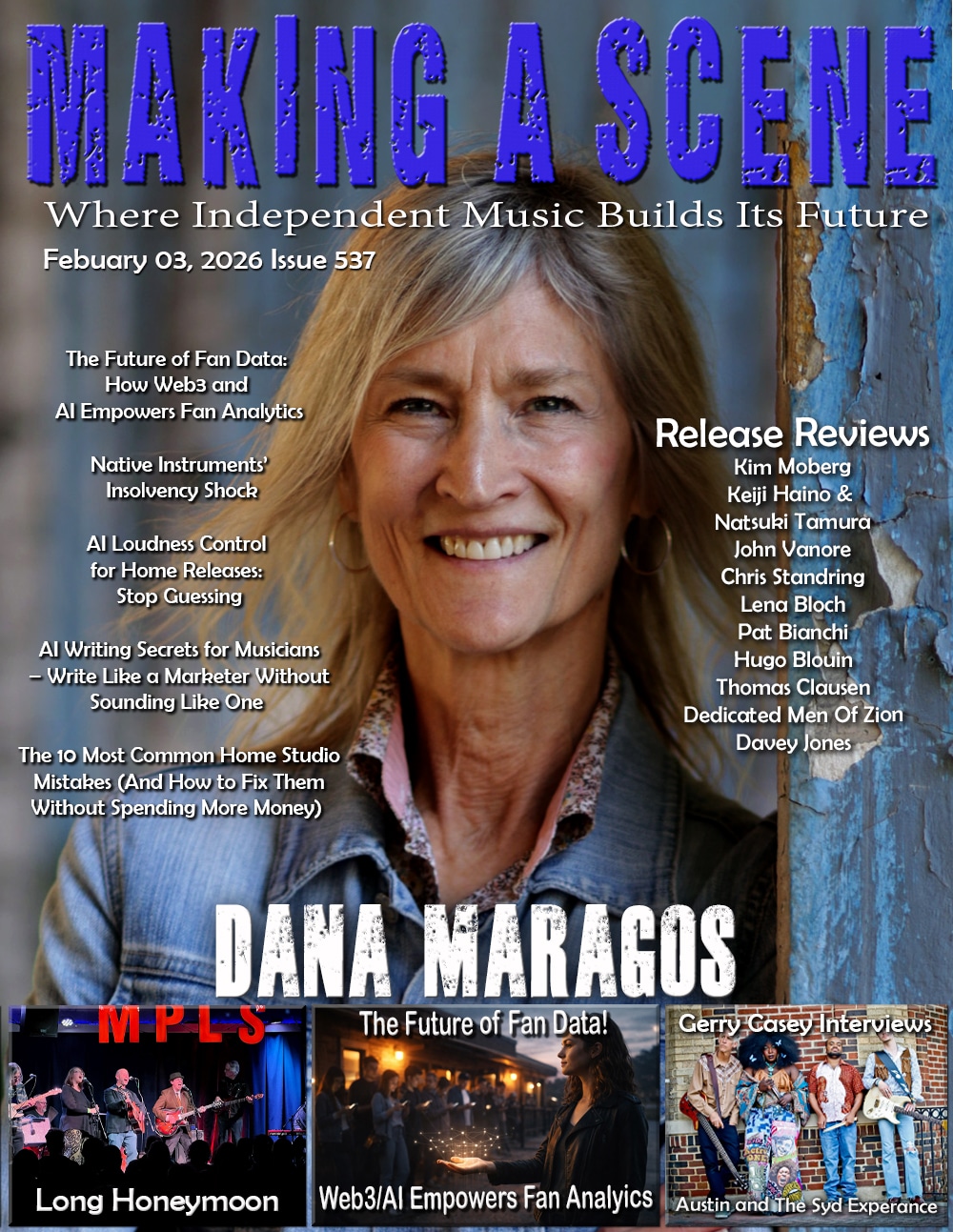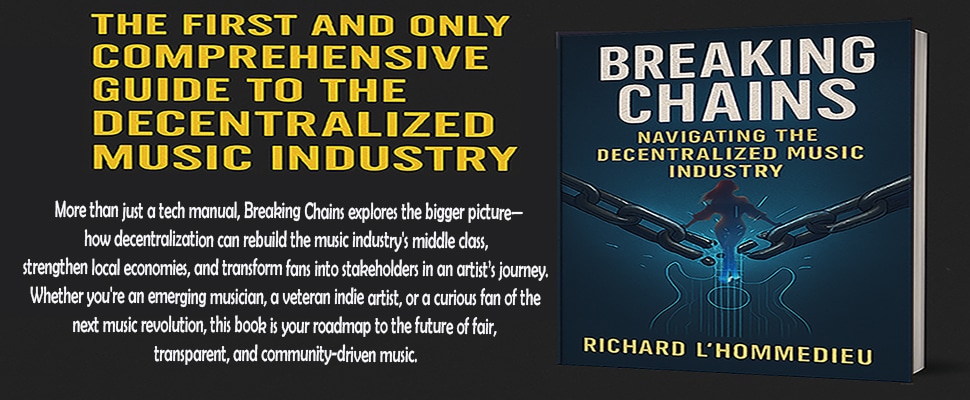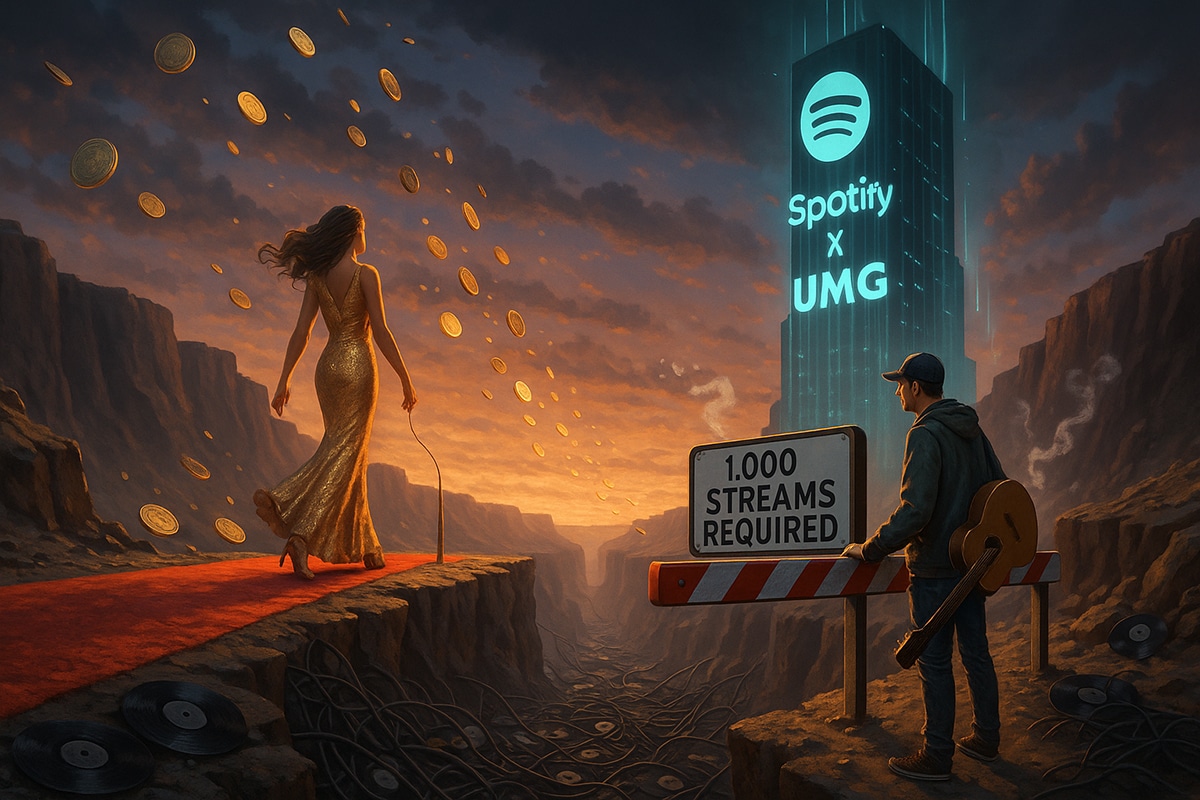How Universal Music Group and Spotify Rewrote the Rules—At the Expense of Indie Artists
Making a Scene Presents How Universal Music Group and Spotify Rewrote the Rules—At the Expense of Indie Artists
In a move that sent ripples through the music world, Spotify announced in late 2023 that artists whose tracks fail to reach 1,000 annual streams would no longer receive any royalties. While the platform justified this decision as an effort to combat streaming fraud and better allocate resources to more popular music, a deeper look reveals a troubling pattern one driven in part by pressure from Universal Music Group (UMG), the world’s most powerful record label.
This shift in royalty structure isn’t just a tweak to the system it marks a seismic change that prioritizes the interests of large music conglomerates while leaving independent artists increasingly marginalized. It reflects a broader industry trend where profit takes precedence over fair compensation and creative equity.
The 1,000-Stream Threshold: A Blow to Independent Musicians
Spotify’s new policy requires tracks to surpass 1,000 streams within a 12-month period to generate royalties. The company argued that this move would reduce payments to fraudulent or “noise” content, freeing up revenue to increase payments for tracks that are more actively consumed. But while the logic may seem sound on paper, the reality is far more complex and damaging.
For emerging artists who don’t have major label support or massive promotional budgets, every stream counts. Stripping away the ability to earn income from those first 999 plays not only undercuts these artists financially, but it also sends a message: unless you’re already successful, you’re not worth being paid. That’s a hard pill to swallow for thousands of creators working to build sustainable music careers from the ground up.
The Artist-Centric Model: Branding Over Equity?
Universal Music Group has framed its recent efforts in streaming reform as an “artist-centric” model a term that suggests fairness and rebalancing in favor of musicians. Introduced through a pilot partnership with Deezer in 2023, UMG’s model proposes to amplify royalties for artists who drive authentic listener engagement, while removing monetization from “noise” content and bots.
According to UMG CEO Sir Lucian Grainge, this model was designed to better reflect the true value of artist-fan relationships. It prioritizes professional content creators—defined by minimum monthly thresholds of 1,000 streams by 500 unique listeners and reduces the share of revenue allocated to what UMG considers non-musical content or low-effort uploads.
But critics argue the term “artist-centric” is misleading. The model does little to protect or promote independent musicians who struggle to meet those thresholds, instead funneling more of the revenue to high-performing mainstream acts most of whom are already signed to UMG and similar corporations. This isn’t a leveling of the playing field; it’s a tightening of control.
The Black Sheep Lawsuit: Corporate Equity Over Artist Royalties
Perhaps the most striking evidence of UMG’s profit-first approach lies in the lawsuit filed in 2023 by the rap duo Black Sheep. The artists accused UMG of entering into a secretive deal with Spotify, accepting lower royalty payments in exchange for equity stakes in the platform without sharing the profits from those stakes with the artists themselves.
Black Sheep claimed that, according to their original contract with Polygram (a label acquired by UMG), they were entitled to 50% of the net receipts from exploitation of their recordings. By taking equity instead of higher per-stream payouts and later profiting from the sale of those shares—UMG allegedly withheld up to $750 million in revenue from its artists.
Though a judge ultimately ruled in UMG’s favor, citing wide discretion in royalty negotiations and the expiration of the statute of limitations, the case exposed a deeper issue: a major label prioritizing stockholder gains over the very artists whose work built their empire.
Profit Over People: The Cost of Corporate Dominance
UMG’s immense influence allows it to shape industry norms, from royalty structures to content prioritization algorithms. When paired with Spotify’s gatekeeping power over what music gets surfaced to listeners, the result is a music economy rigged in favor of mega-stars and major labels. Everyone else—including thousands of indie and mid-tier artists is fighting for scraps.
The change in Spotify’s royalty policy didn’t happen in a vacuum. It fits neatly into UMG’s broader strategy of tightening control over music monetization, securing bigger returns for shareholders, and consolidating power in an already top-heavy industry. The language of fairness and reform masks a deeper consolidation of influence that prioritizes scalable profitability over equitable opportunity.
A Decentralized Alternative: Shifting the Power
In contrast, the decentralized music industry presents a promising alternative. Platforms built on blockchain and smart contracts enable transparent, direct payouts and give artists verifiable ownership over their work. These platforms offer the potential to bypass exploitative middlemen and shift the value back to where it belongs with the creators and their communities.
In a truly artist-first ecosystem, it shouldn’t matter whether you have 1,000 streams or 10,000 followers. What should matter is the authenticity of your art and your ability to connect with your audience. That’s the kind of future worth building one where music doesn’t have to pass through corporate filters to be heard, valued, or rewarded.
Universal Music Group and Spotify’s evolving partnership is restructuring the streaming landscape, but not necessarily in favor of the artists who make it all possible. The 1,000-stream minimum, UMG’s so-called artist-centric model, and allegations of hidden equity deals all point to a system that’s more about protecting profits than supporting creators. The good news? A decentralized future offers a way out
Discover more from Making A Scene!
Subscribe to get the latest posts sent to your email.








